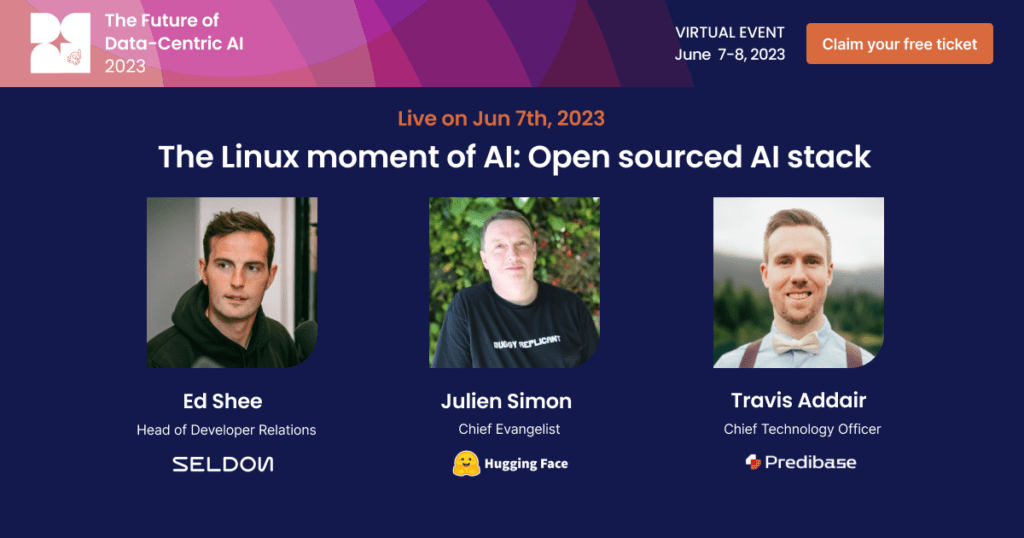
The open-source community has a long history of innovation, and it is poised to continue to play a major role in the future of AI. In the era of sophisticated language models like GPT-4, LLaMA, BERT, data-centric AI promises to ensure the quality, safety, and overall effectiveness of AI-powered applications. As enterprises seek to harness these powerful technologies, they need a way to manage it all. Luckily, the field may be entering its “Linux moment.”
Join Ed Shee, Head of Developer Relations at Seldon, and Snorkel AI for a panel discussion about the open-source AI stack. Ed will focus on how open-source aids the process of deploying high-value AI systems and the challenges and potential solutions that come when scaling these systems. He will be joined by Travis Addair, CTO of Predibase and Julien Simon, Chief Evangelist at Hugging Face on a panel entitled “The Linux Moment of AI: Open Sourced AI Stack.”
The panelists will discuss how open-source tools and libraries are helping developers to build and deploy AI applications more quickly, easily, and affordably.
About the Open-Source AI Stack
The open-source AI stack is a collection of open-source tools and libraries that developers can use to build and deploy AI applications. This includes everything from machine learning frameworks to data sets to visualization tools.
This stack has several advantages over proprietary AI solutions. First, it is more affordable. Open-source tools are often free or very low-cost, which makes them accessible to a wider range of developers. Second, it is more flexible. Open-source tools can be customized to meet the specific needs of each project. Third, it is more secure. Open-source tools (such as Seldon Core) are often more thoroughly tested than proprietary solutions, which makes them less likely to contain vulnerabilities.
The open-source AI stack is still in its early stages of development, but it has the potential to revolutionize the way AI is developed and deployed. As the open-source AI stack continues to mature, it will become an increasingly important tool for developers who want to build innovative AI applications.
The Future of Data-Centric AI Virtual Conference
The Future of Data-Centric AI virtual conference will take place June 7-8, 2023. This is an opportunity to learn about cutting-edge research, network with fellow professionals, and explore new developments in AI such as LLMs, generative AI, prompt engineering, synthetic data, programmatic labeling, and more. Don’t miss your chance to be part of this exciting
conversation and contribute to shaping the future of AI technology! Find out more and register here.